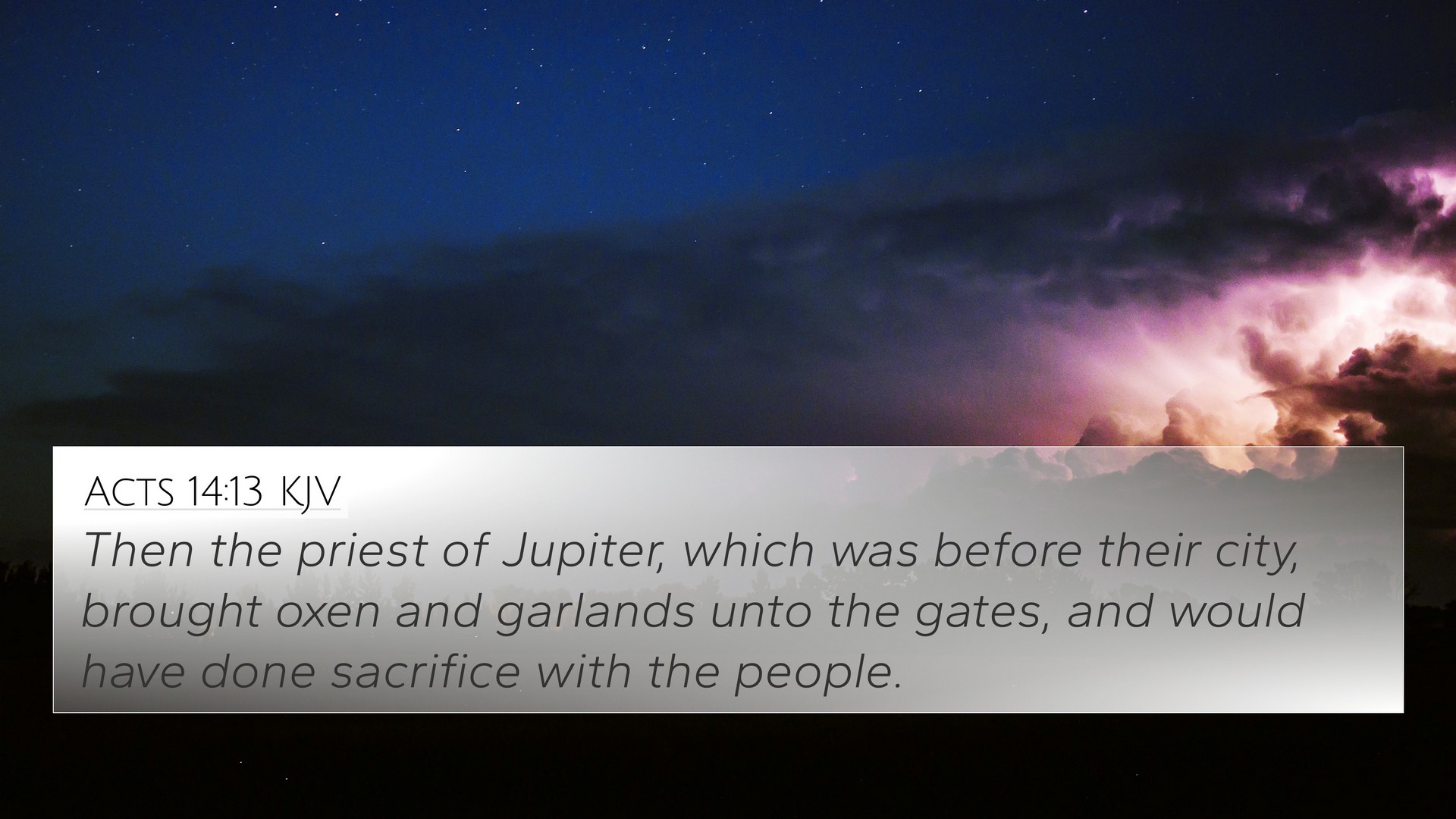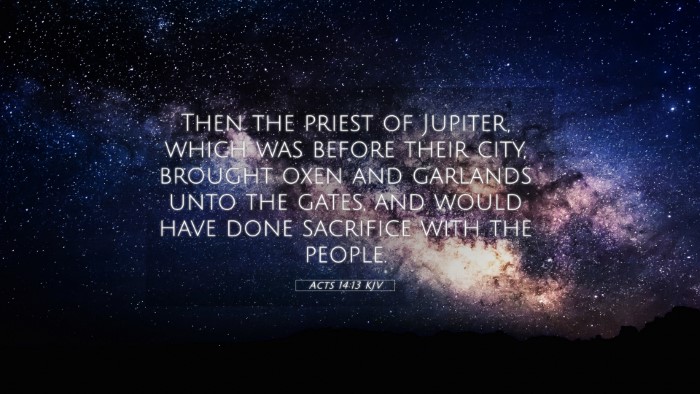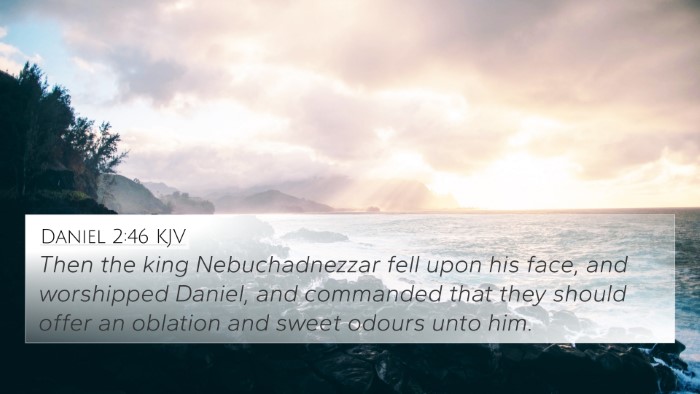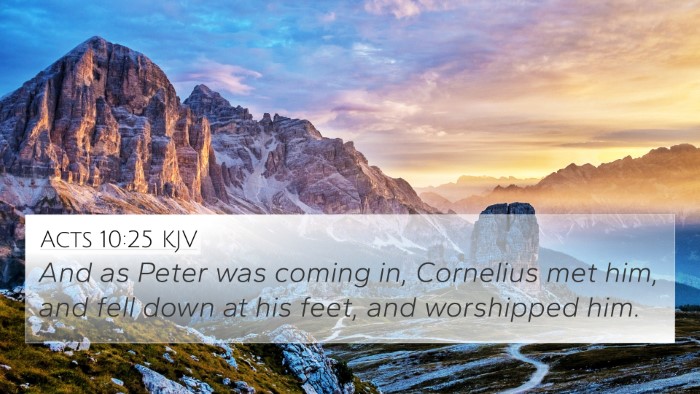Old Testament
Genesis Exodus Leviticus Numbers Deuteronomy Joshua Judges Ruth 1 Samuel 2 Samuel 1 Kings 2 Kings 1 Chronicles 2 Chronicles Ezra Nehemiah Esther Job Psalms Proverbs Ecclesiastes Song of Solomon Isaiah Jeremiah Lamentations Ezekiel Daniel Hosea Joel Amos Obadiah Jonah Micah Nahum Habakkuk Zephaniah Haggai Zechariah MalachiVerse
Acts 14:1 Acts 14:2 Acts 14:3 Acts 14:4 Acts 14:5 Acts 14:6 Acts 14:7 Acts 14:8 Acts 14:9 Acts 14:10 Acts 14:11 Acts 14:12 Acts 14:13 Acts 14:14 Acts 14:15 Acts 14:16 Acts 14:17 Acts 14:18 Acts 14:19 Acts 14:20 Acts 14:21 Acts 14:22 Acts 14:23 Acts 14:24 Acts 14:25 Acts 14:26 Acts 14:27 Acts 14:28



